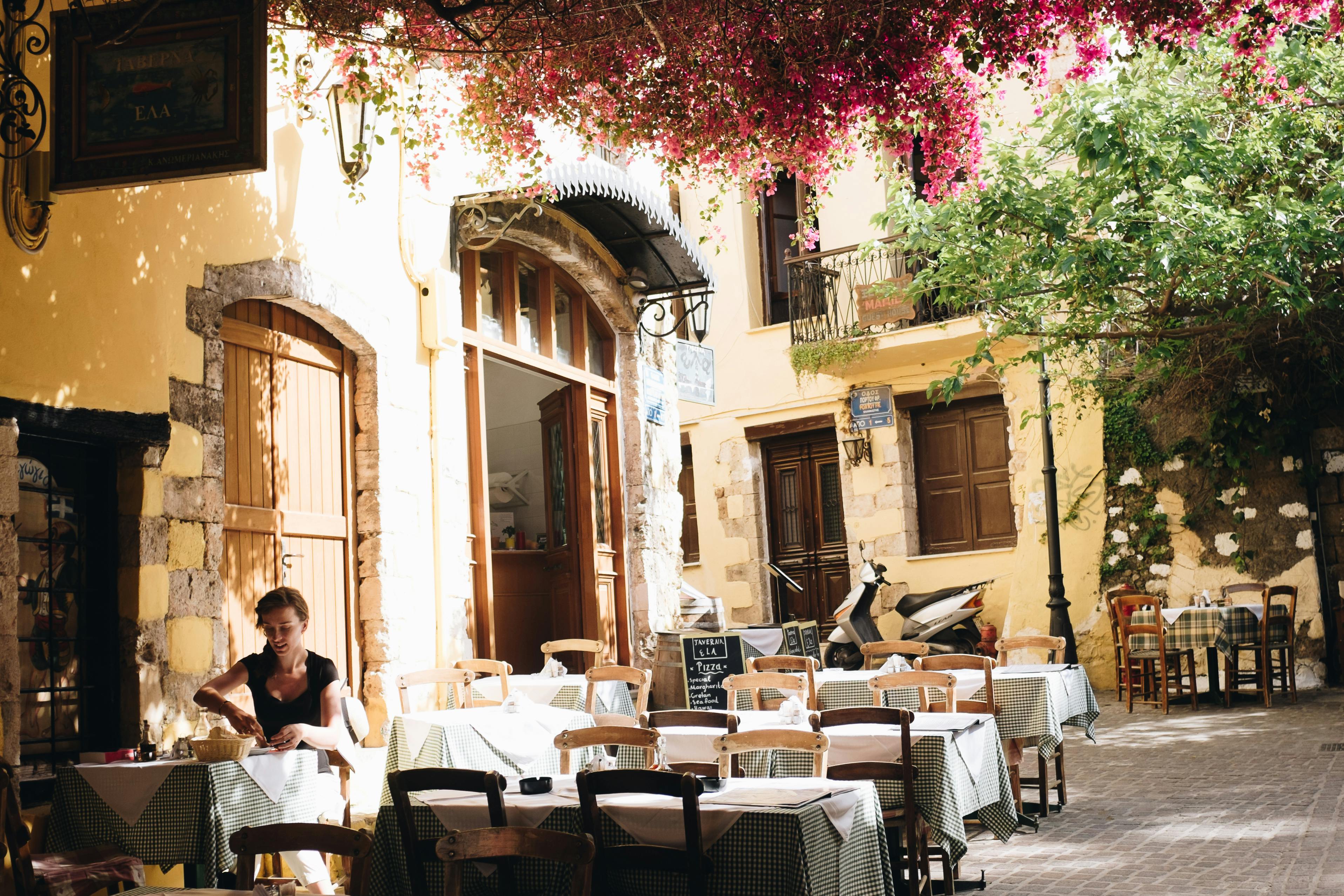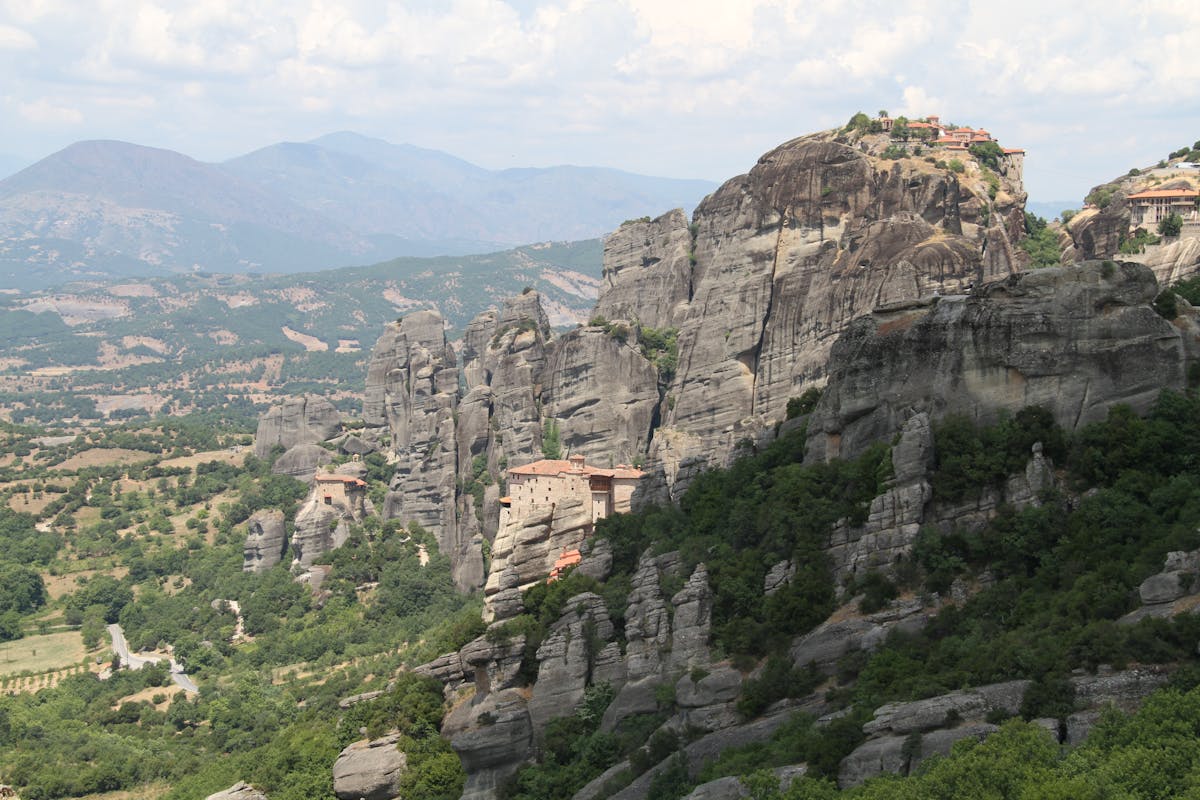Greece is a dream destination, with its ancient ruins, crystal-clear waters, and incredible food. Whether you’re wandering through Athens, relaxing on a Santorini beach, or exploring hidden villages, every moment feels like a postcard. But even in paradise, small mistakes can make travel stressful.
Many travelers miss out on the best experiences by underestimating the summer heat and assuming every island connects easily. Knowing what to expect can help you avoid common pitfalls and make the most of your time. Do you need cash for small purchases? Should you adjust to Greece’s midday mesimeri? What’s the best way to pack for island-hopping?
By planning ahead and embracing the local way of life, you’ll enjoy a smoother, richer experience. Before you set off, check out these 10 common mistakes travelers make in Greece—so you can explore stress-free and enjoy everything this amazing country has to offer!
1. Underestimating the Power of the Sun

Greece’s sunshine is a blessing, but it can be intense, especially in the summer months. Many travelers assume they can handle the heat, only to find themselves dealing with painful sunburns, dehydration, or even heatstroke. The Mediterranean sun is much stronger than in many other parts of the world, especially in places like Crete, Santorini, and Rhodes, where temperatures can easily reach 100°F (38°C) in July and August.
Always wear sunscreen with a high SPF, ideally 30 or higher, and reapply it every few hours, especially if you’re swimming. A wide-brimmed hat, sunglasses, and lightweight, breathable clothing can also help protect you from excessive sun exposure. Stay hydrated by carrying a reusable water bottle and drinking plenty of fluids, as even short sightseeing walks can be exhausting under the Greek sun. If you’re visiting archaeological sites like the Acropolis or Delphi, go early in the morning or later in the afternoon to avoid the midday heat. Taking these precautions will ensure you can fully enjoy Greece without the discomfort of sunburn or heat exhaustion.
2. Overpacking and Bringing Large Suitcases

Greece’s charming streets and island pathways can make dragging a heavy suitcase a nightmare. Many areas, especially in historic towns and on the islands, have narrow streets, cobblestones, or staircases that are difficult to navigate with bulky luggage. In places like Oia in Santorini, you may find yourself carrying your suitcase up steep steps, and in Mykonos, the winding streets make maneuvering large bags frustrating.
Packing light is key to a stress-free trip. A sturdy backpack or a small, wheeled suitcase is ideal for island hopping and navigating ferry terminals. Stick to lightweight, breathable clothing, as Greece’s warm climate means you won’t need heavy layers. Many accommodations, even small guesthouses, offer laundry services, so you don’t have to pack for every single day. Ferries have limited storage space, so avoid bringing a large suitcase. Opting for a carry-on-sized bag will make your travels much smoother and hassle-free.
3. Don’t Limit Your Visit to Only Athens

Athens is an incredible city, rich in history and culture, but Greece has so much more to offer beyond its capital. While the Acropolis and the lively neighborhoods of Plaka and Monastiraki are must-sees, limiting your visit to Athens means missing out on some of Greece’s most breathtaking landscapes and historical sites.
If you love history, take a trip to Delphi, where the ancient Oracle once guided kings and warriors. Meteora is another must-see, with its dramatic rock formations topped by centuries-old monasteries that seem to float in the sky. The Peloponnese region is home to Olympia, the birthplace of the Olympic Games, as well as Nafplio, a charming seaside town with Venetian architecture and a stunning fortress. Thessaloniki, Greece’s second-largest city, offers a mix of Byzantine history, vibrant nightlife, and an incredible food scene.
Even if you’re short on time, consider a day trip from Athens to Cape Sounion to see the Temple of Poseidon, where you can watch one of the most beautiful sunsets in Greece. By exploring beyond Athens, you’ll discover the country’s diverse landscapes, regional traditions, and hidden gems that make Greece truly special.
4. Not Researching Island Connections

Greece has over 200 inhabited islands, but ferries don’t directly connect all of them. Many travelers assume that they can hop between islands freely, only to find themselves stuck due to limited schedules or long travel times. Unlike in some other countries, ferry routes in Greece are not always straightforward, and some islands require a return trip to Athens before continuing elsewhere.
For example, if you’re visiting Santorini and want to go to Corfu, you’ll likely need to return to Athens first, as there is no direct ferry. Islands in different groups—such as the Cyclades (Santorini, Mykonos, Naxos) and the Ionian Islands (Corfu, Zakynthos, Kefalonia)—rarely have direct connections. To avoid frustration, research ferry routes in advance and consider booking tickets ahead of time, especially in peak season when ferries sell out quickly. The website FerryHopper is an excellent resource for checking schedules and planning your island-hopping adventure.
If ferries are inconvenient, domestic flights can be a faster alternative, especially for reaching far-off islands like Crete, Rhodes, or Lesvos. Planning ahead will help you make the most of your time without unnecessary delays.
5. Expecting Everyone to Speak English

Many Greeks, especially in tourist areas, speak English, but assuming everyone is fluent can create challenges. While hotel staff, restaurant servers, and tour guides generally speak English, locals in smaller towns, markets, or family-run establishments may have limited English skills.
Learning a few basic Greek phrases can go a long way in showing respect and making interactions smoother. Simple words like Kalimera (good morning), Parakalo (please), and Efharisto (thank you) are appreciated by locals. If you’re in a more remote area, having a translation app handy can help bridge any language gaps. Greeks are generally warm and welcoming, and even if they don’t speak English, they will often try to help. Smiling and staying polite greatly impact how locals treat you as a visitor.
6. Mispronouncing ‘Gyros’ and Other Greek Words

Ordering food can be one of the best parts of traveling, but mispronouncing popular dishes is a common mistake. Pronounce the beloved street food “gyros” as “yee-ros,” not “guy-ros.” Say tzatziki (the garlic-yogurt dip) as “tsa-tzee-kee” and spanakopita (spinach pie) as “spah-nah-KOH-pee-tah.” Greeks often hear mispronunciations and don’t take offense, but trying to say words correctly improves your dining experience. If unsure, ask your server for the correct pronunciation—it starts a great conversation and shows interest in the local culture.
Trying new foods is part of the adventure, so don’t be afraid to step outside your comfort zone. Order a plate of saganaki (fried cheese), pastitsio (Greek lasagna), or fresh seafood at a seaside taverna. Greek cuisine is full of delicious surprises, so take the opportunity to taste as much as possible!
7. Overlooking the Mainland’s Treasures

While the Greek islands are famous for their beauty, the mainland has just as much to offer, if not more. Many visitors skip the mainland entirely, missing out on stunning landscapes, ancient ruins, and traditional villages untouched by mass tourism. If you only visit the islands, you won’t get a full picture of Greece’s rich history and culture.
One of the most breathtaking destinations is Meteora, where centuries-old monasteries sit atop towering rock pillars, creating an almost otherworldly sight. The Peloponnese region is packed with historical gems, including Mycenae, Olympia, and the stunning castle town of Monemvasia. Epirus, in northern Greece, offers dramatic mountain scenery and beautiful stone villages like Papingo and Monodendri, perfect for nature lovers and hikers. Even lesser-known cities like Ioannina, with its lakeside charm and Ottoman history, or Nafplio, one of the most picturesque towns in Greece, provide a different perspective on Greek culture. If you have extra time in your itinerary, consider renting a car and exploring the mainland—you’ll be rewarded with incredible experiences that many tourists miss.
Read More: 20 Breathtaking Statues from Around the Globe
8. Ignoring Greece’s Midday Break

Many travelers assume Greece operates on a non-stop, all-day business schedule like the U.S. or northern Europe, but that’s not the case. In many parts of Greece, especially smaller towns and islands, a midday break called “mesimeri” (midday) is common. From around 2 PM to 5 PM, many businesses, including shops, pharmacies, and even some restaurants, close for rest before reopening in the evening.
During this time, locals either relax at home, nap, or avoid strenuous activities to escape the afternoon heat. If you’re sightseeing or shopping, you might find the streets unusually quiet. To make the most of your day, plan accordingly—use this break to enjoy a leisurely meal at a taverna, relax on the beach, or recharge for the evening. While tourist-heavy areas may stay open, embracing the local rhythm will make your Greek experience feel more authentic.
9. Not Budgeting for Cash Expenses

One mistake many travelers make in Greece is assuming they can rely entirely on credit cards. While card payments are widely accepted in major cities and tourist hubs like Athens, Mykonos, and Santorini, cash is still king in many smaller towns, villages, and family-run establishments. You might find that some tavernas, taxis, and local markets only accept cash, and ATM access can be limited in remote areas or on smaller islands.
To avoid problems, always carry some cash with you, especially for tipping, small purchases, and transportation. ATMs are available in most places, but they can charge high withdrawal fees, especially if you’re using a foreign bank card. Additionally, some Greek ATMs have withdrawal limits, so it’s wise to plan ahead and take out enough cash for a few days at a time. When withdrawing money, opt for local banks like Alpha Bank, Piraeus Bank, or Eurobank rather than independent ATMs, which often charge higher fees and give worse exchange rates. If you’re visiting a smaller island like Amorgos, Folegandros, or Symi, take out cash in advance, as ATM availability can be sparse. By keeping some euros on hand, you’ll avoid unnecessary stress and ensure you’re prepared for any situation.
10. Not Embracing Local Culture

One of the biggest mistakes travelers make in Greece is sticking to touristy areas without truly experiencing local culture. Greece is known for its warm hospitality, and immersing yourself in daily life will make your trip more memorable. Instead of only eating at restaurants with English menus, venture into a local taverna and try authentic dishes like gemista (stuffed tomatoes and peppers) or stifado (a slow-cooked meat stew). Joining in traditional Greek activities can also enhance your experience. Participate in a local festival, learn a few Greek dance steps, or visit a small village to see how life moves at a slower pace. Greeks are proud of their culture and love sharing it with visitors who show genuine interest.
Read More: 14 Must-Visit Destinations for Women Traveling Alone
Final Thoughts

Greece is more than just a destination—it’s an experience. By avoiding these common mistakes, you’ll travel smarter and enjoy Greece the way it’s meant to be. Pack light, plan your island routes, and embrace the slower pace of Greek life. Step beyond the usual tourist spots and discover hidden gems, from mountain villages to secret beaches. Learn a few Greek phrases, try local dishes, and connect with the people—Greek hospitality is legendary for a reason!
Whether you’re watching a Santorini sunset, exploring ancient ruins, or sipping ouzo at a seaside taverna, every moment in Greece is unforgettable. Travel with an open mind, adapt to the rhythm of the country, and let yourself fully enjoy the adventure. Greece has so much to offer—immerse yourself, and you’ll leave with memories that last a lifetime.

